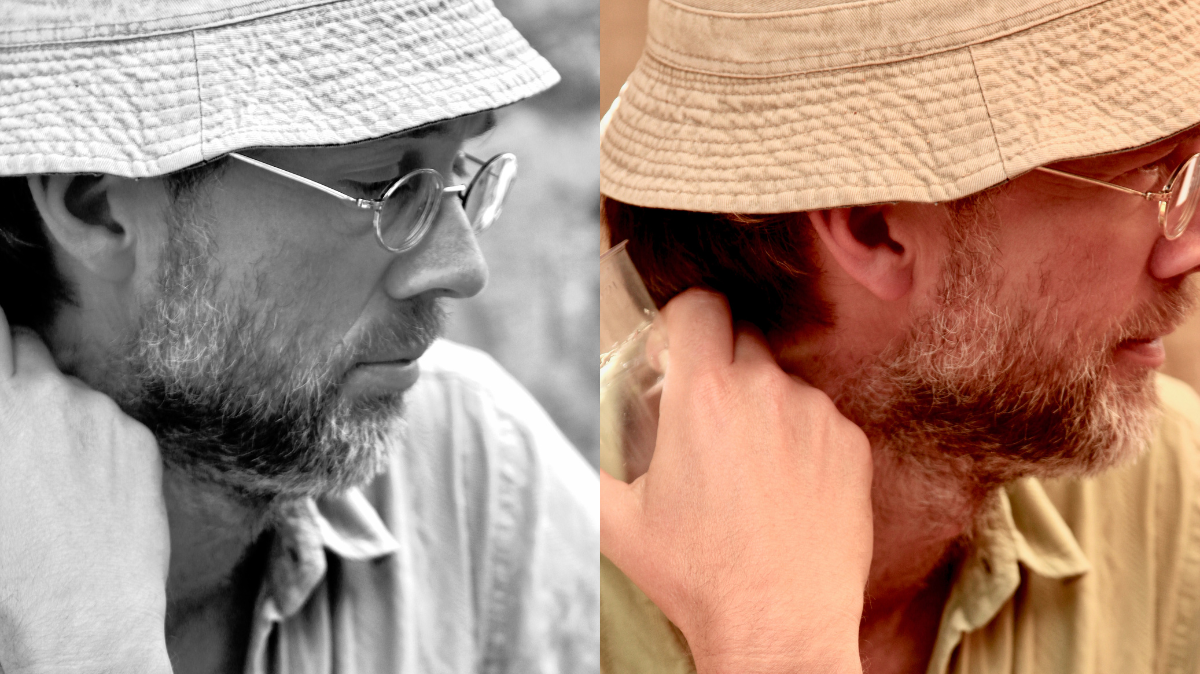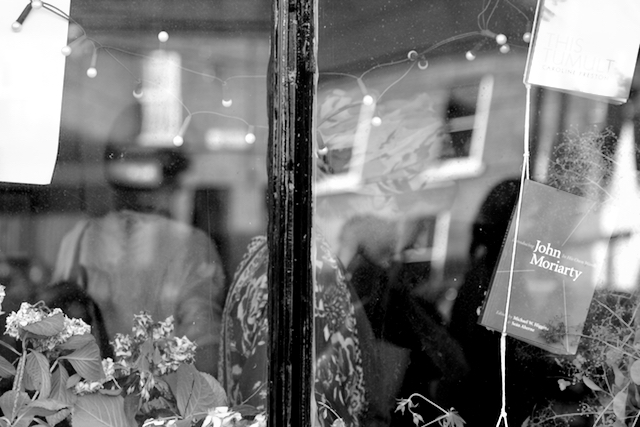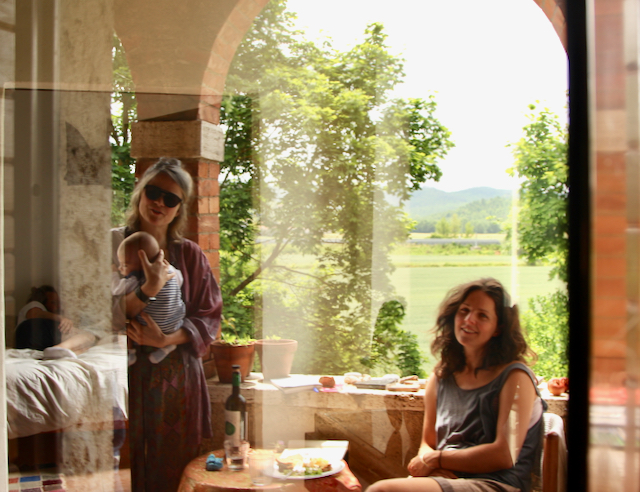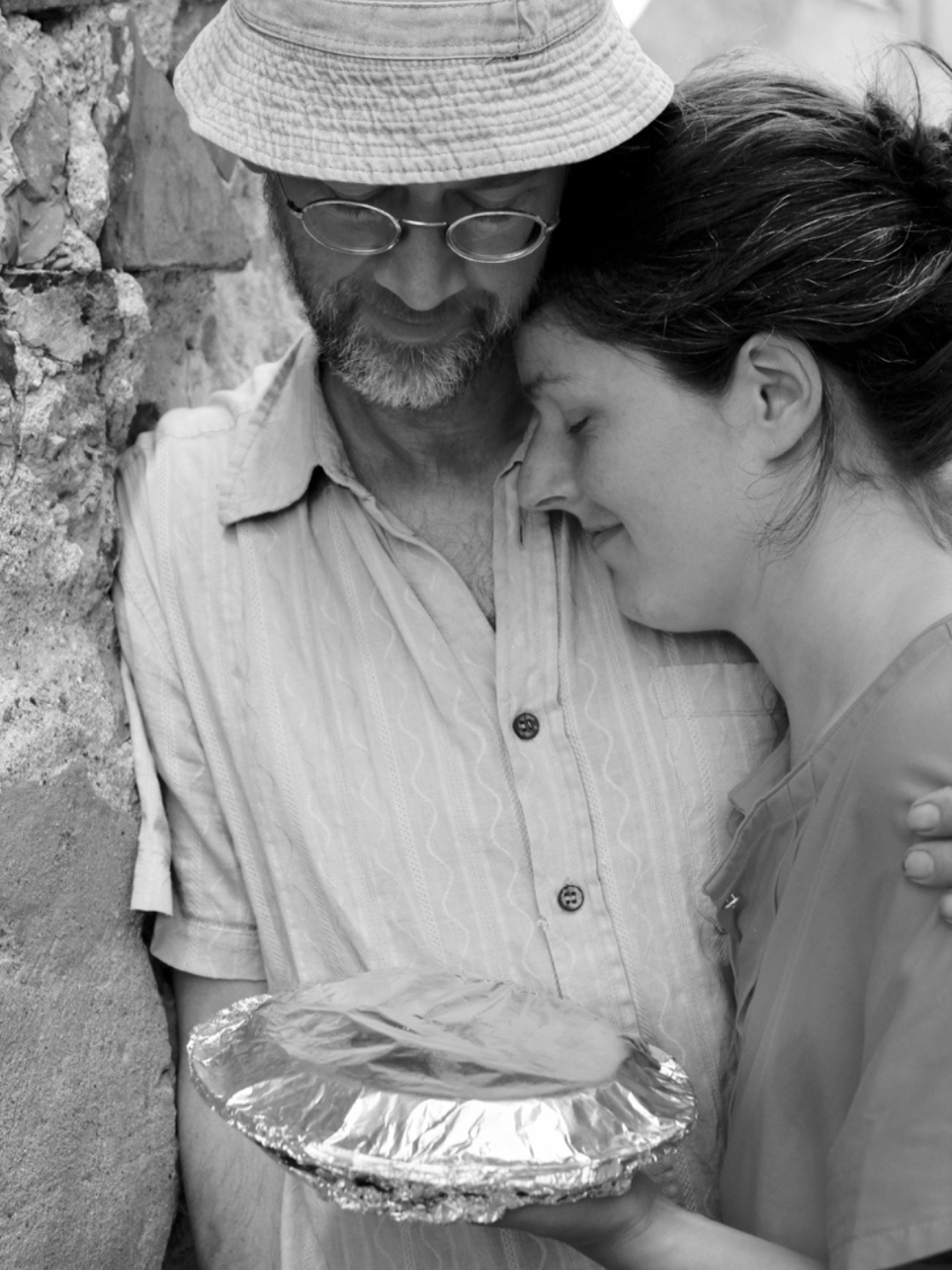NOWHERE/NOW HERE THE LONG COME BACK STORIES: FROM #1 MANCHÁN EVERYWHERE.
“How lucky I am to have something that makes saying goodbye so hard.” — A.A. Milne.
“I guess a good man IS hard to find!” —Flannery O’Connor.
1—NOWHERE: OCTOBER 3RD 2025
A fine writer is hard to find, let alone a good soul. If you are lucky enough to find a fine writer with a good soul, then chances are that you are on for a proper ride.
If the said writer is Irish and knows his butchered language, folk, nature, myths and history like the back of his hand, then you are in for an unusual insight into how the island arguably became the finest storytelling land in the world.
Irish is a language of extended vowels crafted to become one with nature, the idiom of trees and birds, a grammar of incantations and whisper-like phonetics forging fire and water (and milk), the main forces governing the universe according to the Druids.
During my first two years in Ireland, I only heard Gaelic spoken twice, on both occasions by old timers in remote places. It felt grimmer than the Catalan language situation during Franco, the zoophilic dictator, therefore I assumed Irish was morbid blue.
OLD LUCK
I was lucky enough to find Manchán Magan alive, another rare blessing when it comes down to finding fine writers with good souls: they are usually dead.
Ireland is mourning a legendary chronographer of their ancient fields, storms and forests, a blooming author, broadcaster and humble soul who drank the milk of the Druids, found the spring where Gaelic Irish dreams and myths are born, and helped restoring a language from morbid blue to heartbeat green.
Before and Ever After
“We must cultivate our garden,” is Voltaire’s “Candid,” famous last line.
Before Manchán, there was John Moriarty, “Ireland’s most underrated deep thinker,” in the former words.
It is no coincidence that last year Manchán devoted a podcast to Moriarty, “The Bog Shaman: Manchán on Moriarty,” were he portrays his hero with the exact same words that you would use today to describe Magan himself:
“I’m trying to capture your mind and soul to sign them up to the Wild and Wayward Cult of the great Dumbledore of Irish deep thinking and mind roaming. The Bush Prophet and Bog Shaman.”
It is some accurate, unintended self-portrait, don’t you think?
Both M’s, Moriarty and Magan are descendants of the same linage of humble, wild and erudite protectors of the spirit of their magic realm and language.
They walked, hiked, dived and overflew the tapestry of Irish life, transcended the bloodshed, the hunger and the religious shame, and unearthed the environmental and ontological truth behind the fairy forts, sinkholes and myths of an island whose idiom was sequestered and slayed, but never killed.
Magán was not afraid of living or dying, and he cultivated every blade of his living garden until the day when our mouths became stunned zeros.
He was everything the Irish spirit is.
Now he is everywhere.
II NEAR EVERYWHERE, HUE, VIETNAM, OCTOBER 3RD 2025
On the first day of Life without MM in it, I was writing about the last day in Life with my best mate in it.
I was drinking black coffee inside the oldest banyan tree of Vietnam, a large and wide trunk turned into a forest like four-story café.
It was my first day in the ancient city of Hue, and I remember thinking: “Life can’t get any better than this.”
I was instantly aware of the arrogant thought when my phone flashed up.
The future president of Ireland said the words that I didn’t want to hear, and the black coffee became salty and undrinkable.
NOWHERE, Dublin, November 2018
“It is only in commonage consciousness that the Earth can be saved: we have to take down the fences between us and the animals, we have to take down the fences between us and the stars.”
(John Moriarty’ in “The Bog Shaman: Manchán on Moriarty” podcast, 2024.)
I had been lucky enough to briefly meet Manchán in 2018.
We were both walking under a commonage storm, hailstorm on our faces, right outside St. Patrick’s cathedral, on Clenabrassil Street, the unkempt Dublin road named after an undesirable bastard, when both our partners waved at each other with their tiny, soaked hands, and introduced us.
My partner was married to someone else, which is one of the best things that can happen to your partner, unless you are a mortgage-loving sort of person.
Mortgage translates literally and etymologically as “engagement with death.”
Only the finest souls can overturn such an outcome.
REVERSED BRIGHT
And that is what Manchán and Aisling did before the great beyond and the flashing phones: they got married knowing that they would spend their honeymoon by his deathbed.
Today Aisling is a widow, my ex partner finally divorced her previous husband, and I’m here, nowhere, listening to Lisa O’Neill singing at the funeral service a devastating song I had never heard, now intertwined evermore with the fabric of his afterlife; while he, Manchán, is tiptoeing the Great Offline Beyond after orchestrating the first funeral ever seen that will lift you up.
PS: Note that the only people capable of organising uplifting wakes and burials in the Western world are the Irish; so don’t get carried away if you are not one of them.
THE SPOON TRENCHES
Now Here, Dublin, 2013
Before briefly meeting Manchán, I had already heard about him while living with my dear friends and fellow orphans Stefano and Dónal, in a certain House of Pain, in Stoneybatter.
I remember destroying most of the dishes, mugs, glasses, forks, spoons and knives of the House of Pain during a dramatic birthday night.
I had come back “home” early after a conclusive fight with my boss.
I was the worst waiter in the world, and I was sentenced to dry cutlery and glasses. It could have been therapeutic, but it became rather manic, particularly once I was back in the House of Pain, where I would engage on the same task like an alienated assembly line worker.
I remember that on the rare occasions that I was hungry at the House of Pain, I had to raid the bedrooms of my said housemates in search for plates, glasses, mugs, knives or spoons.
They did mostly use them for eating and drinking purposes, although once they crossed their thresholds, they seemed to barricade themselves inside, trenches of kitchen utensils fortified behind their doors.
CRACKING THE DISHES
On that lovely birthday night, I broke into both rooms, gathered all the plates, mugs, knives, spoons and glasses I could find, and smashed them against the kitchen floor until there were only three items left of each.
I was sad and proud.
I had lost a job but I had gained the dream of a house deprived of more than two dirty dishes.
Next thing, the door opened and Stefano walked into the kitchen oblivious to my mess, broad smile in his face.
I remember looking at his younger self and rosy cheeks; his free, wild curls outlining his massive head like eternal youth planets.
And I also remember that there was something acutely different about him on that night: he looked as if he had just been enlightened.
EVERYTHING
And he had.
He stepped in oblivious to the forks and the knives like a fucken fakir, and started going on about Aisling’s new boyfriend.
They had spent the weekend together in Donegal or Connemara, and on their last night they were walking by the sea when a storm broke.
Stefano recalled the event mystified:
“He put up a few cairns together under the crazy rain. It was mind-blowing to see the stones against the wind and the deluge as if they were glued together. The man is a shaman,” he said
I remember thinking that if I was ever to become a man, then I would like to be that man.
Fast-forward a decade, and I was travelling my heartbroken self with a camera hanging off my neck, when Stefano invited me to his country house in Tuscany.
It was only then, a decade after the hailstorm on our faces, when I got to know Aisling’s boyfriend properly.
THE PHOTO
Hector,
Holy god, you’re a beautiful photographer. Those moments you captured are spectacular. I am blown away by so many of the scenes, but the one that has been totally besotted is this one attached. It is simply glorious… a gem among a whole treasure box of jewels.
Thank you so much for sharing with us how you see the world
Manchán (email from Manchán, May 29th, 2019)
Nowhere: Sinalunga, Tuscany, May 2019
Cameras are great when you are heartbroken: you can hide behind the viewfinder and elude the fatal grammar of the aftermath, you can avoid eye contact; the haunting, endless echoes of the ‘sorry to hear about your vanished sweetheart’; that you must deal with after turning Love into Death.
I was filled with broken words and in serious disarray, when Aisling and Manchán showed up in Tuscany.
Petra, Stefano’s partner, had just given birth to an unbreakable baby daughter, a tiny force of nature that could destroy sunsets and improve most mornings. Babies are perhaps not the best company of the heartbroken soul, let alone other damned loving couples.
I was surrounded by reproduced and brimming love in a pornographically stunning landscape, and the motions of that triangulation only served to accelerate my forlorn dreams of Hara-kiri.
LOVE RAGE
Now Here: Sinalunga, Tuscany, 2019
“Clear days bring the mountains down to my doorstep, calm nights give the rivers their say, the wind puts its hand to my shoulder some evenings and then I don’t think, I just leave what I’m doing and I go the soul’s way.”
—John Moriarty.
I can’t remember any of the conversations of those Tuscan days, but I remember the quality of the feeling; how my darkness and angst sluggishly travelled to light, until reaching a sense of unity, of Oneness, that had been alien to me for some time.
It felt like waking up unscathed after a decade in a coma.
I remember the rolling green fields and old castles, all of us stacked inside Stefano’s campervan, the sunset exploding in the rear windows, eyes, Amiata’s baby and feral hands, her laughing.
I remember that we all hiked to an old oak tree that Stefano loved. It was a stunning guardian of wilder realms, and we encircled it as hypnotised, and Manchán said that it was a sacred tree, and Stefano that he had written a song about it.
I remember thinking that Oneness could defy history, physics and poetry, and that I will start living next to trees —and I am.
LAST SUNDAY
It was a bright Sunday morning and there was a popular party in our neighbouring town, a chocolate-box hamlet of cobblestone streets, blooming flowerpots and stone houses. The villagers had been gathering every Wednesday for the past twelve months to make pasta together, an insane amount of flower, tomato sauce and ragout.
I remember the locals shifting tables and bringing plastic chairs to squeeze us in, all smiles and copper arms in short-sleeves, the jubilant atmosphere and proud dresses, shoes, hairdos, life after War and dictators, that freedom; and then the same old traditions, our emotional inclusion, the possibility of an island called belonging emerging again behind our eyes.
And I remember remembering Stefano’s words on that broken silverware night in the House of Pain, “the man is a Shaman.”
Manchán and Aisling had to leave the party early to catch their plane back home, and I remember how they were both hugging and carrying a doggie bag for the flight that was nothing short of Shaman size.
And, inevitably, I remember thinking that if I was ever to become a man, then I would like to be that man.
EPILOGUE
A man who states in his last podcast:
“Moriarty had been absolutely and totally clued in to the disharmony that we have created on the planet. It caused him to quit his life and his career, an early adoptee of quietly quitting… It is so hard to keep up with them or to follow the meanderings of his eternally seeking mind. At some moments he is like an Old Catholic priest, at others, and Indian Guru or Pagan Shaman…”
And at other moments he is you: Manchán Everywhere.
I can’t come to quantify the feeling, but Lisa did:
“The wind bristled you in behind the springtime
Float old note new into my mind
You hold the note, the note just moves the movement
Let go of the note and so move everything






